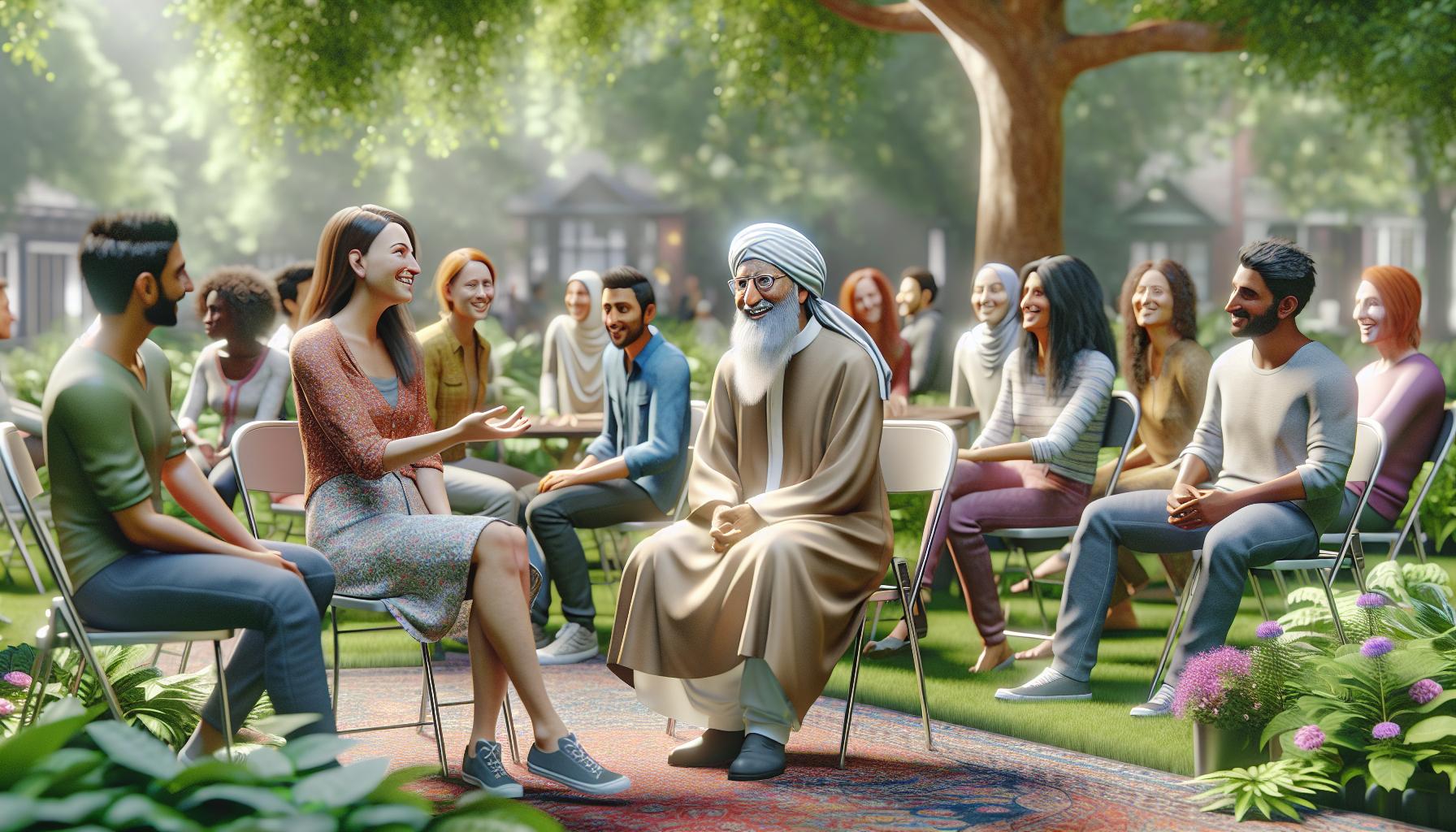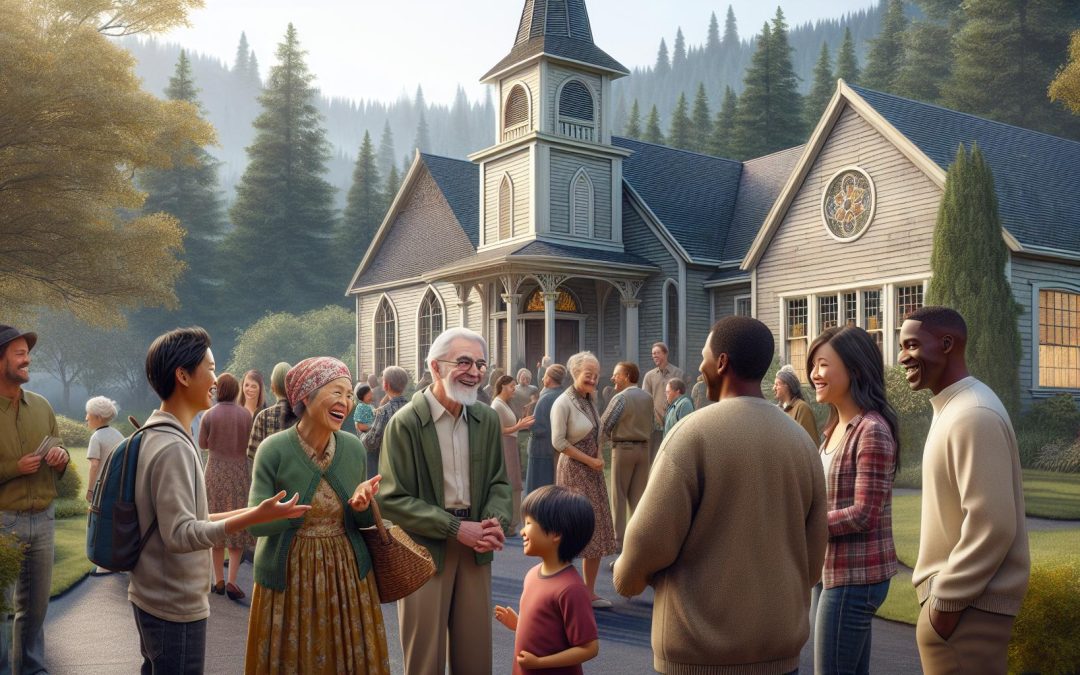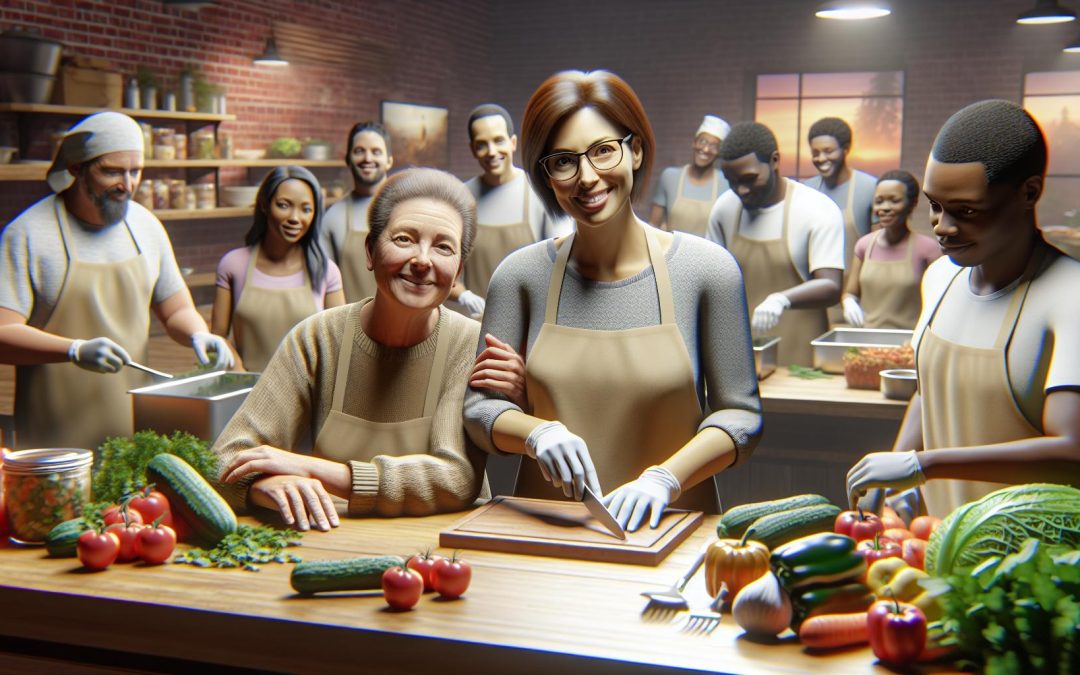When I think of Issaquah, the first thing that comes to mind is its breathtaking natural beauty, but there’s something equally captivating happening beneath the surface. This vibrant community is becoming a beacon for interfaith dialogue, where diverse beliefs and cultures come together to build bridges of understanding and respect. It’s not just about talking; it’s about listening and learning from one another.
In a world where differences often divide us, Issaquah’s commitment to fostering interfaith connections is a refreshing change. People from various faiths gather here, not just to coexist but to enrich their lives through shared experiences and perspectives. It’s inspiring to witness how these conversations spark new friendships and deepen community bonds. As we explore this journey of interfaith dialogue in Issaquah, I’m excited to share stories of hope, compassion, and collaboration that are making a real difference in our world.
The Importance of Interfaith Dialogue
Engaging in interfaith dialogue holds significant value in today’s diverse society. By fostering open communication, communities like Issaquah create spaces where different faiths intersect, promoting mutual respect and understanding. The benefits are manifold.
Strengthening community bonds is one key advantage. When individuals from varied religious backgrounds, such as Christianity, Islam, Judaism, and Buddhism, come together, they build friendships based on shared values and goals. These connections increase resilience during challenging times.
Reducing prejudice and stereotypes is another crucial aspect. Dialogue counters misinformation and misconceptions that often arise due to lack of interaction. By sharing personal experiences, people see beyond stereotypes, recognizing shared humanity.
Encouraging empathy and compassion forms the foundation of these exchanges. As individuals listen to each other’s stories, they develop a deeper appreciation for different perspectives. This empathetic approach contributes to a more harmonious community, reflecting Issaquah’s commitment to collective well-being.
Inspiring collaborative efforts towards social causes is yet another outcome. When diverse groups unite around common concerns, like environmental sustainability or social justice, their combined efforts yield more substantial results. These partnerships enhance civic engagement, driving positive change in the community.
Fostering personal growth is an often-overlooked benefit. Participation in interfaith dialogue challenges individuals to reflect on their own beliefs, leading to self-awareness and broader worldview. Exposure to contrasting ideas enriches one’s understanding of global cultures and promotes intellectual curiosity.
Empowering younger generations through education and engagement equips them for the future’s intercultural landscape. By involving youth in interfaith initiatives, communities instill values of acceptance and inclusivity early on, preparing them for a diverse world.
Building bridges between faith groups aligns perfectly with Issaquah’s values of inclusiveness and community spirit. Interfaith dialogue invites everyone to the conversation, ensuring diverse voices contribute to the shared narrative and future of the community.
Overview of Interfaith Dialogue in Issaquah
Interfaith dialogue in Issaquah serves as a crucial platform to foster understanding among diverse belief systems. It’s rooted in a commitment to community and inclusivity.
History and Development
Interfaith initiatives in Issaquah began gaining momentum in the early 2000s. Community leaders sought to address a growing need for dialogue among different faiths. Local clergy from various backgrounds gathered to host forums and small group discussions that encouraged open communication. These early efforts gradually expanded through partnerships with schools, civic organizations, and cultural centers. As participation grew, so did the scope of activities, incorporating educational workshops, community service projects, and joint celebrations of religious festivals. These developments strengthened Issaquah’s identity as a welcoming city rich in cultural and spiritual diversity. My appreciation for the vibrant history of interfaith dialogue in Issaquah stems from witnessing its evolution into a dynamic force shaping the community’s values and actions.
Key Participants and Stakeholders
Interfaith dialogue in Issaquah thrives thanks to a dedicated network of participants. Religious leaders from churches, synagogues, mosques, and temples collaborate in planning events that encourage exchange. Civic leaders and local government officials play essential roles, providing support and resources for dialogue initiatives. Educational institutions contribute by hosting interfaith conferences and promoting tolerance education within their curricula. Additionally, non-profit organizations focused on human rights and multiculturalism are pivotal in bridging gaps and organizing community service opportunities. Every participant adds a unique perspective, enriching the dialogue and ensuring all voices are heard. I’ve observed how this inclusive approach inspires confidence in the community’s ability to address shared challenges and celebrate commonalities.
Initiatives and Events
Issaquah hosts various initiatives and events aimed at fostering interfaith dialogue. These activities encourage collaboration, knowledge-sharing, and mutual respect among different faith communities.
Community Workshops
Community workshops in Issaquah offer unique opportunities for personal and communal growth. These workshops focus on topics like storytelling and religious literacy to promote understanding. Participants engage in open discussions, learning about each other’s beliefs and traditions. By sharing personal stories, individuals form deeper connections, breaking down barriers that often exist due to misunderstandings. Workshops also delve into practical skills crucial for interfaith dialogue, like active listening and empathy. Attendees gain tools to communicate effectively across cultural lines, enhancing their ability to contribute positively to the community. Local leaders and experts facilitate these sessions, ensuring they address relevant societal issues and questions faced by participants. By participating in these workshops, community members gain insight into diverse perspectives and foster an environment of inclusivity and acceptance.
Interfaith Conferences
Interfaith conferences in Issaquah bring together leaders and members of diverse religious communities. These events aim to explore shared values and find common ground. Attendees discuss global issues, such as climate change, emphasizing collaborative problem-solving. Workshops within the conferences provide spaces for deeper dialogue on topics like social justice and peace-building, equipping participants with actionable ideas. Conferences often feature keynote speakers, including theologians and cultural historians, who offer fresh insights and inspire new approaches to interfaith collaboration. These gatherings encourage networking and relationship-building among different faiths, creating robust interfaith networks. Such connections lead to sustained partnerships and ongoing dialogue, fortifying community bonds. Through annual conferences, Issaquah solidifies its role as a leader in promoting cohesive and resilient multi-faith communities.
Challenges in Interfaith Dialogue
Interfaith dialogue in Issaquah faces several challenges that participants work diligently to overcome. Key among these are cultural and religious differences and the necessity to overcome misunderstandings.
Cultural and Religious Differences
Cultural and religious differences present significant challenges in interfaith dialogue. Each faith tradition carries unique beliefs, customs, and practices that need careful consideration. These variations can lead to misinterpretations if not approached with openness and respect. For example, dietary restrictions in some religions or specific prayer rituals can be unfamiliar to others. If individuals don’t engage with curiosity and a genuine desire to learn, these differences can create divisions rather than fostering unity. Engaging in workshops and educational activities allows participants to experience different faith customs firsthand, which builds mutual respect and deepens understanding. Appreciating these cultural diversities enhances Issaquah’s vibrant community spirit by celebrating rather than avoiding differences.
Overcoming Misunderstandings
Overcoming misunderstandings is essential for successful interfaith dialogue. Miscommunication often stems from preconceived notions and stereotypes that persist across various faith communities. These misunderstandings hinder trust and dialogue progress if not addressed. Open conversations provide an opportunity to clarify misconceptions by sharing personal experiences and discussing challenging topics. For instance, community forums in Issaquah encourage participants to ask questions about unfamiliar belief systems in a safe space, facilitating clearer communication. Active listening plays a crucial role in resolving misunderstandings as it allows individuals to truly hear and appreciate other perspectives. With commitment and patience, the dialogue becomes more productive, leading to stronger relationships and a more inclusive community narrative.
Success Stories in Issaquah
In Issaquah, interfaith dialogue has fostered powerful stories of unity and understanding. I’ve encountered numerous individuals whose lives transformed through these meaningful interactions.
Testimonials from Participants
Participants often share profound experiences of personal growth and community connection. Sarah, a local teacher, mentions how interfaith workshops opened her eyes to new perspectives and enriched her appreciation for different traditions. She describes engaging in discussions as deeply moving, often leading to friendships that transcend religious boundaries.
Another participant, Ahmed, a small business owner, explains that interfaith dialogue improved his ability to empathize with others, which positively impacted his interactions with customers from varied backgrounds. He emphasizes the importance of listening and learning from experiences different from his own.
Emily, a college student, shares that these dialogues ignited her passion for social justice and inspired her to join interfaith volunteer projects. Her involvement led to a better understanding of global issues and the role different faiths can play in addressing them.
Notable Achievements
Issaquah’s interfaith initiatives have led to several notable achievements that highlight the community’s commitment to inclusivity. One significant accomplishment is the establishment of an annual interfaith festival that celebrates diverse religions through art, music, and food. This event attracts hundreds of attendees and fosters a sense of unity and appreciation for cultural diversity.
Another noteworthy achievement is the formation of an interfaith council consisting of leaders from multiple faiths and community sectors. This council works collaboratively to address social challenges and promote harmony in Issaquah. Their projects, such as food drives and educational seminars, have made a tangible impact, bringing people together for the common good.
Furthermore, the integration of interfaith curricula in local schools has enriched students’ understanding of world religions, preparing them for life in a diverse society. This educational approach encourages respectful dialogue and nurtures young minds to become open-minded and inclusive citizens.
Future Prospects and Opportunities
Interfaith dialogue in Issaquah presents numerous prospects for further growth and impact. Expanding these efforts into schools holds the potential for instilling acceptance early in life. With support from educators, introducing interfaith curriculum across grade levels can nurture an inclusive mindset among students, promoting acceptance and respect for diverse beliefs.
Integrating technology into dialogue initiatives offers exciting possibilities. Virtual forums and webinars can connect global communities, allowing participants from different backgrounds to engage in conversations beyond geographical constraints. This approach could amplify the reach of Issaquah’s initiatives, bringing fresh perspectives and fostering a broader understanding of diversity.
Collaborative projects across faiths can address societal issues such as poverty and environmental sustainability. By partnering with local organizations, residents can develop comprehensive solutions that benefit the entire community. These initiatives would not only tackle pressing problems but also strengthen bonds among diverse groups.
Hosting cultural exchange events can create a platform for different religious and cultural communities to share traditions and practices. Festivals featuring food, music, and art from various cultures would celebrate diversity and draw broader community participation, enhancing mutual appreciation.
Younger generations stand poised to lead the evolution of interfaith dialogue. Establishing youth councils or mentorship programs can empower them with leadership roles, enabling fresh ideas and approaches to flourish. Supporting peer-driven initiatives further cultivates a sense of responsibility and engagement among young residents.
Issaquah can share its successful models with other regions through workshops or speaking engagements. By sharing experiences and lessons learned, Issaquah could inspire similar efforts globally, contributing to a larger movement of inclusivity and understanding. These steps not only solidify Issaquah’s role in promoting interfaith harmony but also offer paths for future development and collaboration.
Conclusion
I’m truly inspired by Issaquah’s commitment to fostering interfaith dialogue and building a more inclusive community. The stories of collaboration and mutual respect are a testament to the power of open communication and shared experiences. It’s heartening to see how these efforts not only strengthen community ties but also empower individuals to embrace diversity with empathy and understanding.
As we look to the future, the potential for expanding these initiatives is immense. By continuing to engage in meaningful conversations and embracing innovative approaches, Issaquah can set an example for communities everywhere. I’m excited to see how the younger generations will carry this torch forward, ensuring that acceptance and inclusivity remain at the heart of our shared narrative.





0 Comments